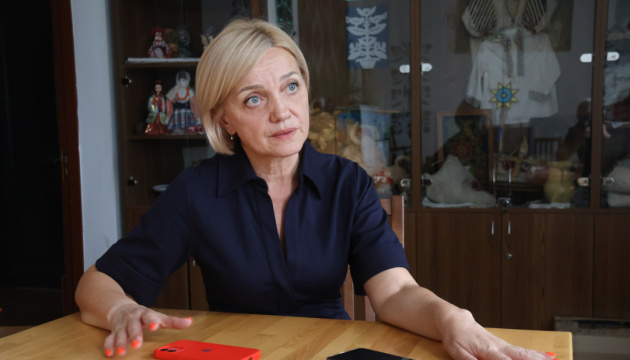
Olena Ivanovska, the newly appointed Commissioner for the Protection of the State Language, has identified five key areas she considers urgent.
She shared these priorities in an interview with Ukrinform.
“The fundamental task — one that has humanitarian, legal, and symbolic dimensions — is the protection of the Ukrainian language in the temporarily occupied territories. We will document language-related crimes, advocate for their legal recognition at both international and national levels, and lay the groundwork for linguistic reintegration after de-occupation,” Ivanovska said.
She stressed that it is critical to demonstrate that Russia’s linguistic aggression is part of its broader armed aggression.
The second top priority, according to Ivanovska, is the recognition of Ukrainian Sign Language as a full-fledged component of national language policy.
“This is a matter of linguistic equality, dignity, and a modern understanding of communication. We will strengthen inter-agency dialogue and expert collaboration to advance Bill No. 2340 and ensure practical enforcement of the rights of people with hearing impairments — to access information in Ukrainian, both spoken and signed,” she said.
Another area of focus will be supporting the use of the Ukrainian language in the diaspora, as millions of Ukrainians have found themselves abroad due to the war.
“We must maintain their connection with the homeland through language — by creating cultural and educational centers, launching digital learning platforms, introducing a ‘Ukrainian Language Map of the World,’ and empowering the diaspora as linguistic ambassadors of Ukraine globally,” Ivanovska said.
She also noted that the Language Ombudsman’s Secretariat would work to fully integrate the Ukrainian language into modern digital services, artificial intelligence, state applications, user interfaces, video games, and technology.
“Ukrainian must be present and functional everywhere — in smartphones, in cars, and on international platforms. This isn’t just a matter of convenience — it’s about identity and competitiveness,” Ivanovska said.
She emphasized that Ukraine’s constitutional language policy model must be aligned with the realities of wartime and the public’s desire for true linguistic equality, free of colonial legacy.
“We deeply respect all minority languages, but at the same time, we will firmly and consistently build a unified Ukrainian-language environment — as a security, integration, and humanitarian priority. It’s essential to eliminate symbolic inequality in legislation, including the special status of the Russian language, which in the context of Russian military aggression is not just a means of communication but a tool of destabilization,” she said.
According to Ivanovska, language policy should be confident but not authoritarian, consistent but context-sensitive, state-driven but open to cooperation with civil society.
“We must move away from the false dichotomy of ‘soft power versus coercion.’ A successful language policy is a balance between enforcement and support,” Ivanovska said.
The Cabinet of Ministers of Ukraine appointed Ivanovska as Commissioner for the Protection of the State Language on July 15.
Source: Newly appointed language ombudsman outlines five priority tasks



